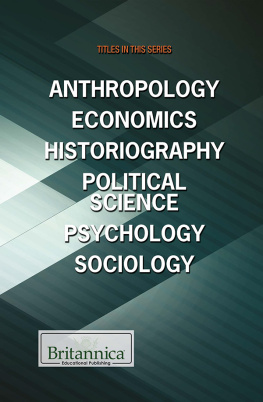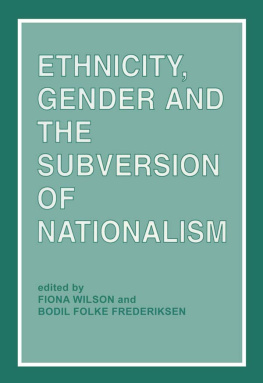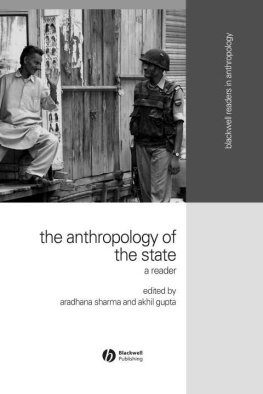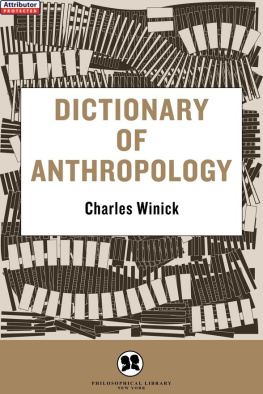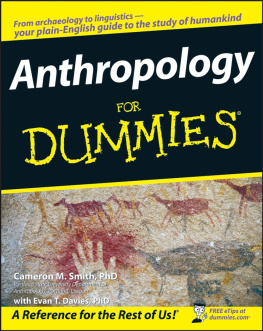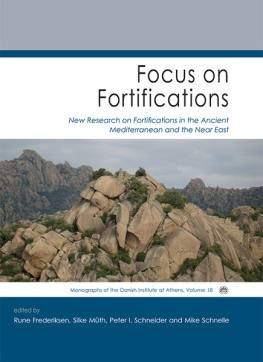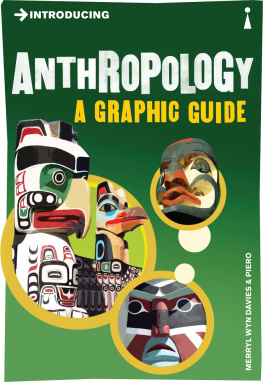Frederiksen - An Anthropology of Nothing in Particular
Here you can read online Frederiksen - An Anthropology of Nothing in Particular full text of the book (entire story) in english for free. Download pdf and epub, get meaning, cover and reviews about this ebook. year: 2018, publisher: Natl Book Network, genre: Detective and thriller. Description of the work, (preface) as well as reviews are available. Best literature library LitArk.com created for fans of good reading and offers a wide selection of genres:
Romance novel
Science fiction
Adventure
Detective
Science
History
Home and family
Prose
Art
Politics
Computer
Non-fiction
Religion
Business
Children
Humor
Choose a favorite category and find really read worthwhile books. Enjoy immersion in the world of imagination, feel the emotions of the characters or learn something new for yourself, make an fascinating discovery.

- Book:An Anthropology of Nothing in Particular
- Author:
- Publisher:Natl Book Network
- Genre:
- Year:2018
- Rating:5 / 5
- Favourites:Add to favourites
- Your mark:
- 100
- 1
- 2
- 3
- 4
- 5
An Anthropology of Nothing in Particular: summary, description and annotation
We offer to read an annotation, description, summary or preface (depends on what the author of the book "An Anthropology of Nothing in Particular" wrote himself). If you haven't found the necessary information about the book — write in the comments, we will try to find it.
An Anthropology of Nothing in Particular — read online for free the complete book (whole text) full work
Below is the text of the book, divided by pages. System saving the place of the last page read, allows you to conveniently read the book "An Anthropology of Nothing in Particular" online for free, without having to search again every time where you left off. Put a bookmark, and you can go to the page where you finished reading at any time.
Font size:
Interval:
Bookmark:

What people are saying about
This is a beautifully written piece of work it deals with the kind of existential concerns that anthropology normally deals with so badly by approaching them through thickets of deep theory that all too often become the focus of attention rather than the questions of being that such theory is allegedly intended to illuminate. Instead, the author takes the direct route of explaining in clear and simple yet never simplistic terms, why an endless quest for meaning may carry downsides and blindsides if relentlessly pursued.
Keir Martin, author of The Death of the Big Men and the Rise of the Big Shots
It is a rare pleasure to read about nothing in particular with the constant notion of wanting to read more about nothing! The chapters of this book meander around nothing, leading the reader back and forth between observations of a place in its non-existence and detailed being, references to and analysis of nothingness versus nothing and the importance of a counterpart of nothing in everything. Like with its contents the author transforms language into a form of questions and in between is it poetry? Is it theory? contesting blind spots in a kaleidoscopic manner. A text one reads so fast just to start over again when through in order to not have gotten lost on any of the details. Katharina Stadler, conceptual artist and independent scholar
Frederiksens book is a well-written and very interesting anthropological experiment. Not only does it address meaninglessness and the challenge it poses to the venerated tradition of looking for meaning and structure behind all kinds of everyday phenomena and personal life stories, Frederiksen also searches for a style of representation (or perhaps rather presentation) that resonates with his object of study. I really appreciate the way he takes his informants literally, not only in the sense of taking them seriously. Boldly and with success, he employs literary means in order to describe how nothing in particular takes place among them.
Anne Line Dalsgaard, author of Matters of Life and Longing
Also by the author
Georgian Portraits Essays on the Afterlives of a Revolution.
Zero Books, 2017 (with Katrine B. Gotfredsen).
ISBN: 978-1-78535-362-8

First published by Zero Books, 2018
Zero Books is an imprint of John Hunt Publishing Ltd., No. 3 East St., Alresford, Hampshire SO24 9EE, UK
www.johnhuntpublishing.com
www.zero-books.net
For distributor details and how to order please visit the Ordering section on our website.
Text copyright: Martin Demant Frederiksen 2017
ISBN: 978 1 78535 699 5
978 1 78535 700 8 (ebook)
Library of Congress Control Number: 2017953140
All rights reserved. Except for brief quotations in critical articles or reviews, no part of this book may be reproduced in any manner without prior written permission from the publishers.
The rights of Martin Demant Frederiksen as author have been asserted in accordance with the Copyright, Designs and Patents Act 1988.
A CIP catalogue record for this book is available from the British Library.
Design: Cecilia Perriard
Printed and bound by CPI Group (UK) Ltd, Croydon, CR0 4YY, UK
We operate a distinctive and ethical publishing philosophy in all areas of our business, from our global network of authors to production and worldwide distribution.
To Pelle, Neel and Ene
Something missing is missing
Terrence W. Deacon, Incomplete Nature
In short, this is an exploration of what goes missing when one looks for meaning. And although this in many ways is not a book that is as such obsessed with clarification, an initial one might be in place. Namely, the interrelation of nihilism, nothingness and meaninglessness that forms my point of departure. There are many definitions of what nihilism is or can be, and a vast literature exploring different angles and conceptualizations of the notion.
On a descriptive level, this book departs from characters most closely resembling the former, with sentiments often aligning with the character Pechorin in the Lermontov novel A Hero of Our Time; one that is likely to have inspired Nietszche in his writings on nihilism.
There have been claims that meaninglessness has become epidemic in the contemporary world, one perceived consequence of this being that people increasingly turn against both society and political establishments with little concern for the content (or lack of content) that might follow. As such, despite the fact that encounters with meaninglessness, nihilism and nothingness are often seen as troubling there is reason not to be blind towards the presence and actual consequences of meaninglessness, and to turn away from seeing these phenomena or notions only as troubling but also as factual realities. The hedonistic nihilism noted by Mark Fisher in Capitalist Realism is revealing in this context: a world where imagining political alternatives becomes increasingly difficult and action therefore comes to seem pointless. In many ways, the present book departs from this type of situation and seeks to depict from within. As such, it is a book that gravitates towards nothing. It does not do so through a standard linear narrative (that would betray its contents) but through interwoven snapshots, scenes and fabulations.
Stanley Rosen has argued that nihilism is primarily a theoretical and only secondarily a practical or cultural phenomen., one that blends ethnographic fieldwork, observations and writings with various literary devices. Using this approach is not because the ethnographic material cannot say enough in and of itself, but because literature, film, imagination and fiction were part and parcel of the field.
The world is all too easily stuffed with meaning, writes Simon Critchley.
Nobody likes nothing.
I certainly wish with all my heart
that it did not exist. But wishing is not enough.
We live in the real world, where nothing does exist.
We cannot just disinvent it.
Stanley Donwood, Slowly Downward A Collection of Miserable Stories
Some years later we meet again. This time its in an underground bar in the center of the city, popular among various alternative sub-groups at this time. Its located in a partly demolished residential building, occupying what used to be the downstairs apartment. The day before the bar had held a theme night under the title Forever Alone Party Love warms you up but Vodka is cheaper. Soaked-and-dry-again flyers from the event are scattered around the premises. It was Oz who suggested the bar; theyve been coming here for some time and currently its one of the only places they can go to. We sit in a tiny room, in what is likely to have been the bathroom, on pillows strewn out on the floor, gathering around a stump from a tree that serves as a table. Two bottles of vodka are placed on the stump along with some small glasses, an ashtray and a shared pile of cigarette boxes. We sit and drink and smoke for a few hours. Post-punk is playing; people come and go; some sit with us for a while before leaving again; others just look inside and turn around.
Font size:
Interval:
Bookmark:
Similar books «An Anthropology of Nothing in Particular»
Look at similar books to An Anthropology of Nothing in Particular. We have selected literature similar in name and meaning in the hope of providing readers with more options to find new, interesting, not yet read works.
Discussion, reviews of the book An Anthropology of Nothing in Particular and just readers' own opinions. Leave your comments, write what you think about the work, its meaning or the main characters. Specify what exactly you liked and what you didn't like, and why you think so.


